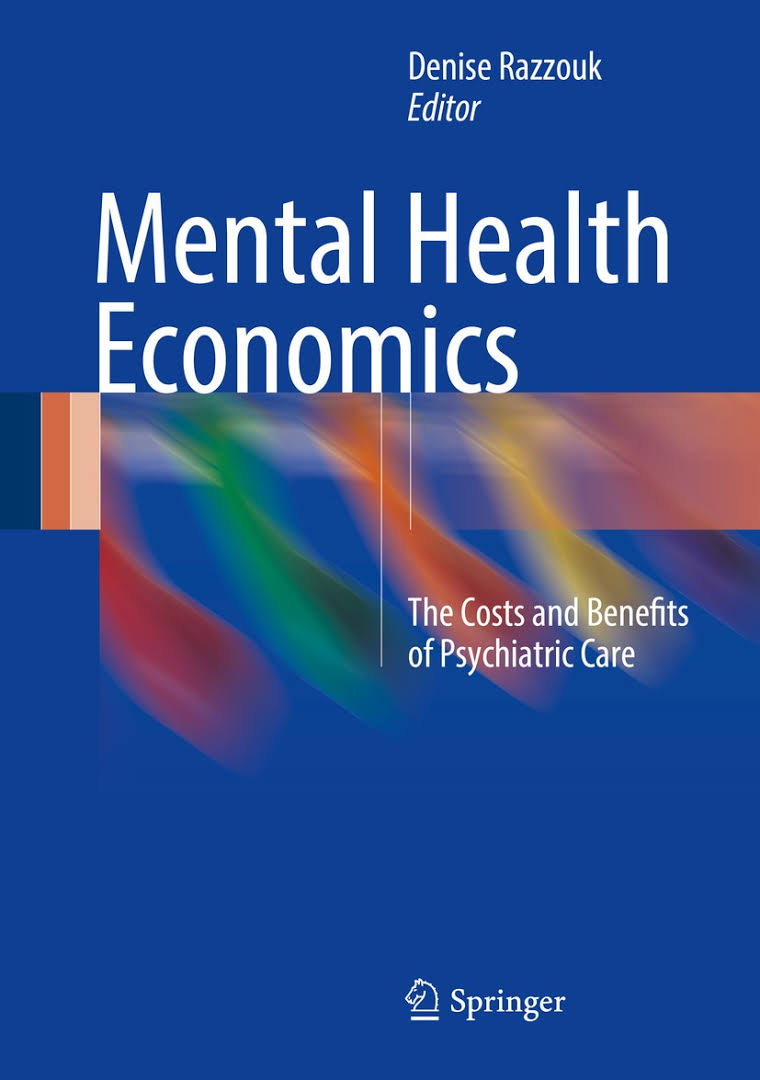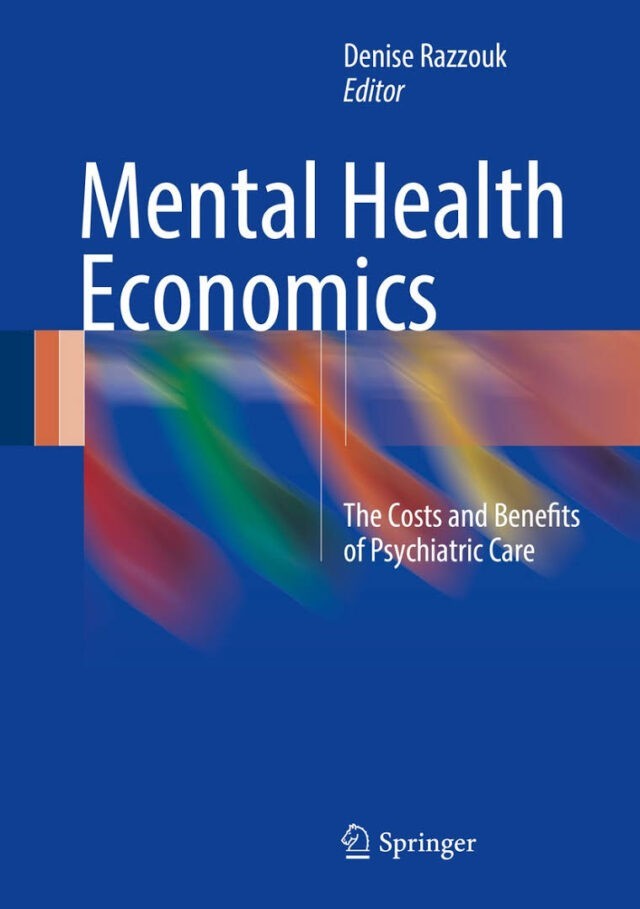Mental Health Economics: The Costs and Benefits of Psychiatric Care

 The main objective of this work is to provide a book with high quality content that becomes a reference and support for graduate course (Mental Health, Public Health and Epidemiology) and for research in the domain of health economics applied to mental health. Also this book might be useful for policymakers on formulating mental health policies. Key messages of this book are based on: a) mental illness represent a huge cost for society and for health care; b) health economics applied to mental health could help in the optimization of resource allocation for mental health care and for better decision making in terms of balancing costs and benefits; c) interventions and treatment should be also chosen in general medical practice and in public decision-policy according to cost-effectiveness, burden of disease and equity principles; d) quality of care is related with better outcomes, higher quality of life for clients, and with lower costs for society and health system (best value for money); e) it is possible to decrease the burden of mental disorders with cost-effective treatments.
The main objective of this work is to provide a book with high quality content that becomes a reference and support for graduate course (Mental Health, Public Health and Epidemiology) and for research in the domain of health economics applied to mental health. Also this book might be useful for policymakers on formulating mental health policies. Key messages of this book are based on: a) mental illness represent a huge cost for society and for health care; b) health economics applied to mental health could help in the optimization of resource allocation for mental health care and for better decision making in terms of balancing costs and benefits; c) interventions and treatment should be also chosen in general medical practice and in public decision-policy according to cost-effectiveness, burden of disease and equity principles; d) quality of care is related with better outcomes, higher quality of life for clients, and with lower costs for society and health system (best value for money); e) it is possible to decrease the burden of mental disorders with cost-effective treatments.
The book is divided in four main topics: 1. Introduction to Health Economics applied to Mental Health – this section is an overview of basic principles, concepts and methods used in Economics and Health Economics to enable students to make critical appraisal of Health Economics texts and also to design research studies in this topic. 2. Health Economics applied to the evaluation of quality and costs of Mental Health Services – this section presents results of Brazilian studies on the costs of mental health care (hospital, outpatient care, residential care, informal care), methods on the measurement of costs and it discusses issues related with public policies decisions and quality of mental health car in the low and middle income countries context. There is also an overview of quality indicators of mental health care and instruments to evaluate mental health services and costs.3. Health Economics applied to evaluate treatment of mental disorders – This section presents a review of cost-effectiveness of pharmacological treatments and other interventions applied for treating the most burdensome mental disorders such as depressive and anxiety disorders, bipolar disorders, psychosis, alcohol and drug disorders, dementia, and hyper attention deficit disorders. 4. Health Economics, burden and indirect costs of mental disorders – This section highlights the social and economic burden caused by mental illness under societal perspective focusing on stigma, unemployment, indirect costs in the workplace (absenteeism and presenteeism), the relationship between poverty and mental disorders, global health and social determinants of mental health and on the costs of mental disorders (depression, anxiety, psychosis, alcohol and drug disorders). We present some instruments to measure indirect costs of mental disorders.
O livro MENTAL HEALTH ECONOMICS: The costs anad benefit of psychiatric care, editado pela Profa Denise Razzouk, acabou de ser lançado no formato online e está disponível no website da Springer:

